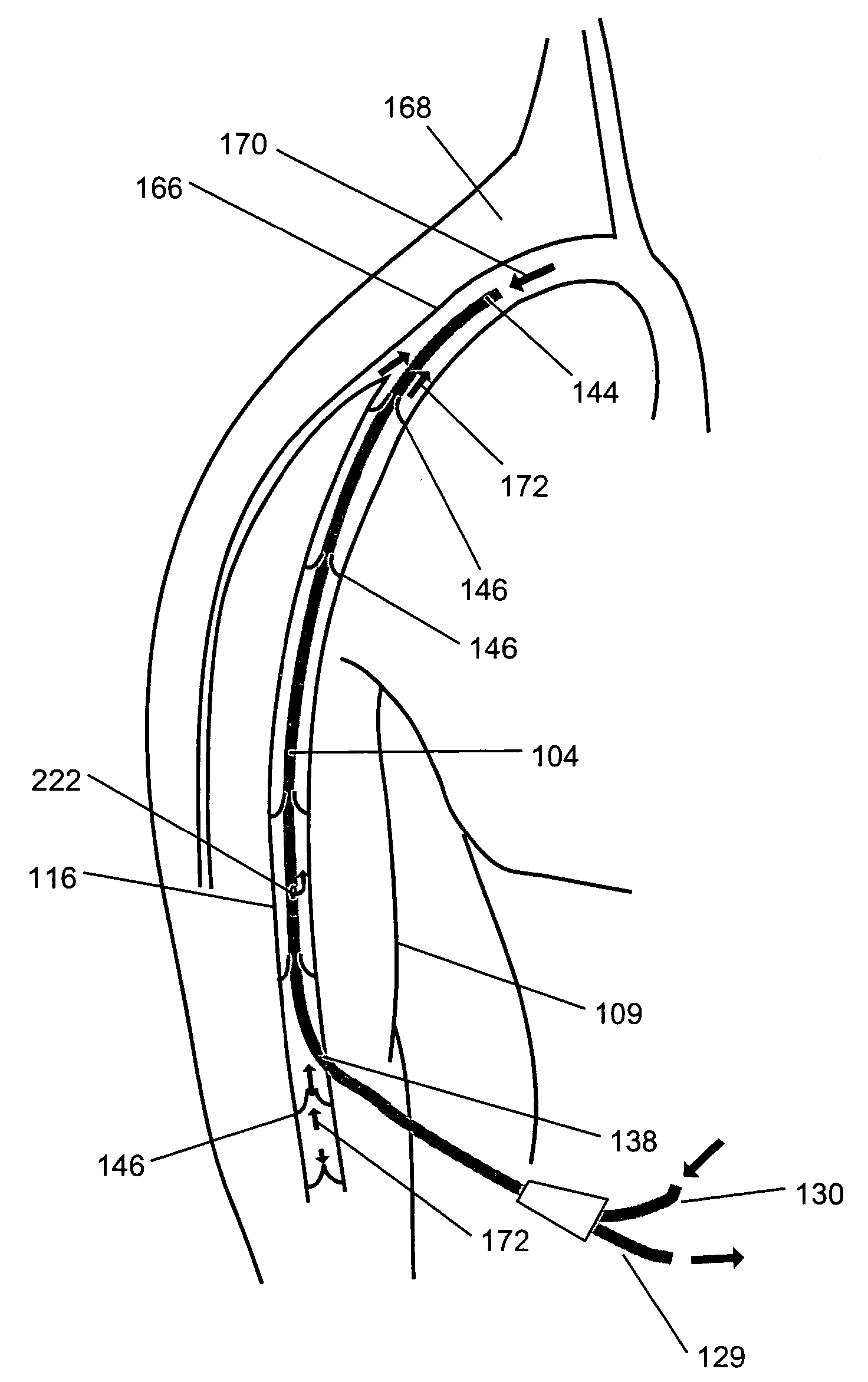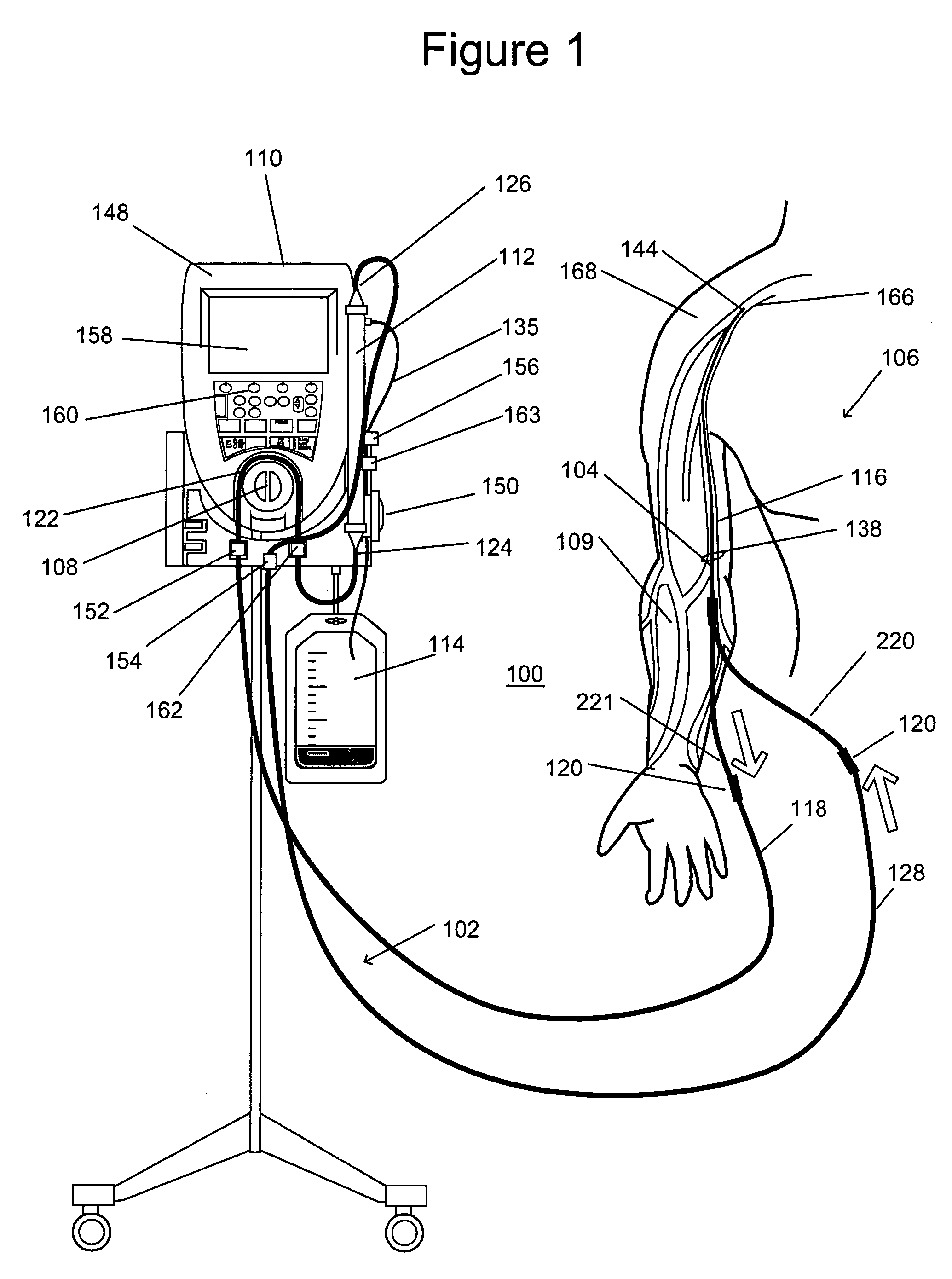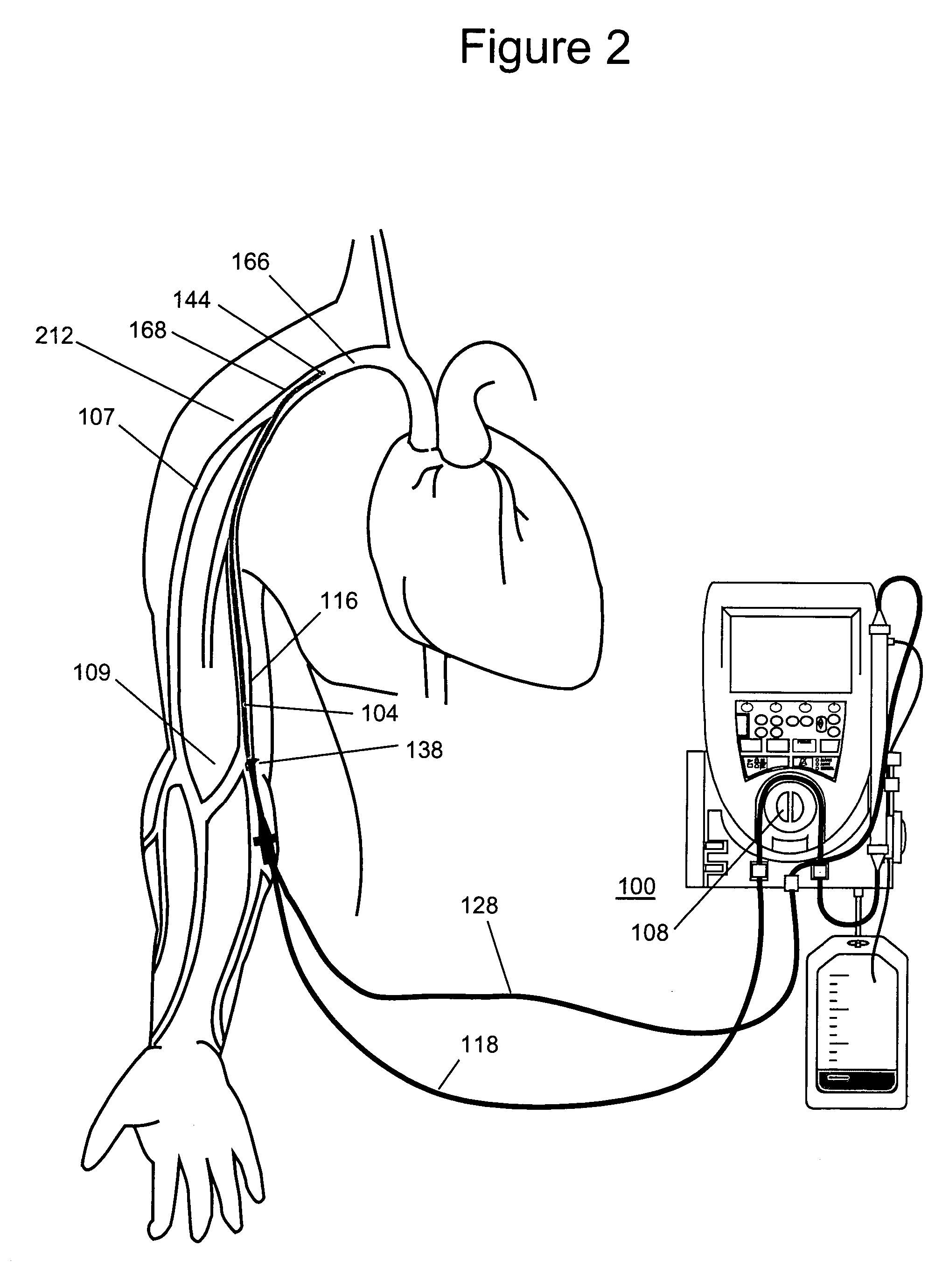Method and apparatus for ultrafiltration utilizing a peripheral access dual lumen venous cannula
a peripheral vein and cannula technology, applied in the field of extracorporeal treatment of blood, can solve the problems of poor blood flow in the peripheral veins of some chf patients, inability to achieve standard peripheral vein access for all chf patients, and vein collapse around, etc., to achieve ease and safety of dual lumen peripheral vein access, and relieve fluid overload
- Summary
- Abstract
- Description
- Claims
- Application Information
AI Technical Summary
Benefits of technology
Problems solved by technology
Method used
Image
Examples
Embodiment Construction
[0077]FIG. 1 shows an intravenous blood ultrafiltration system 100 having an extracorporeal blood circuit 102 that includes a dual lumen middle length peripheral access venous blood cannula 104, commonly called a Peripherally Inserted Central Catheter (PICC). The disclosed blood circuit is a single use disposable set for ultrafiltration of blood to treat fluid-overload in patients 106. The ultrafiltration system and blood circuit are intended to be used in a non-ICU setting and to not require surgery.
[0078]Effective treatment of fluid overload by ultrafiltration of blood with a dual lumen catheter generally requires at least 10 to 40 mL / min of withdrawn blood. The rate of blood flow required for ultrafiltration could consume substantially all of the blood flowing through the peripheral veins of many CHF patients. However, only a portion of the blood flowing through the peripheral vein may be withdrawn. During blood withdrawal, the resistance of interconnecting branches of the venous...
PUM
| Property | Measurement | Unit |
|---|---|---|
| distance | aaaaa | aaaaa |
| length | aaaaa | aaaaa |
| length | aaaaa | aaaaa |
Abstract
Description
Claims
Application Information
 Login to View More
Login to View More - R&D
- Intellectual Property
- Life Sciences
- Materials
- Tech Scout
- Unparalleled Data Quality
- Higher Quality Content
- 60% Fewer Hallucinations
Browse by: Latest US Patents, China's latest patents, Technical Efficacy Thesaurus, Application Domain, Technology Topic, Popular Technical Reports.
© 2025 PatSnap. All rights reserved.Legal|Privacy policy|Modern Slavery Act Transparency Statement|Sitemap|About US| Contact US: help@patsnap.com



